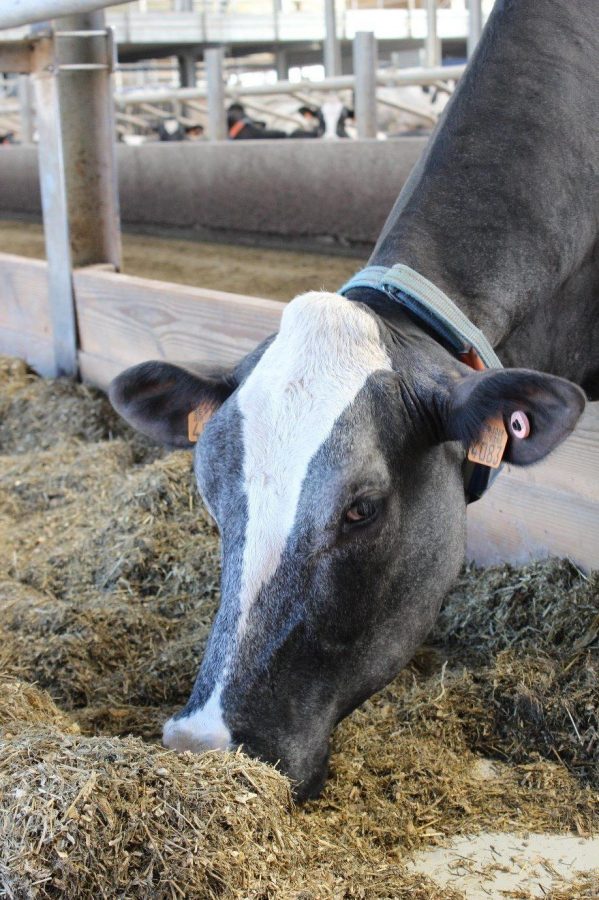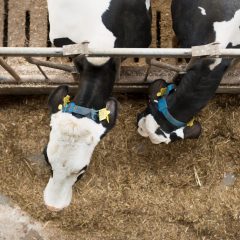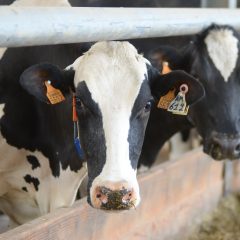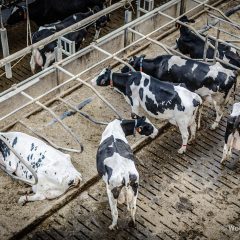Research project OPTImizing Protein Nutrition in cattle to tackle the N- and P-excretions to the environment in an economical way

Contact our expert

Tine Van den Bossche
Onderzoekster ILVO
Main research question
The EKOPTI project, "Optimizing Protein in Cows," aims to enhance the efficiency of feed protein utilization in cattle. This is accomplished by focusing on improving the protein quality of locally cultivated feeds, developing strategies to lower protein through precision feeding, and optimizing nitrogen efficiency by enhancing rumen function. In parallel, we investigate how these measures can economically contribute to reducing nitrogen excretions and emissions into the environment.
Research approach
This project has now ended. We conducted a total of three ILVO animal experiments and explored seven specific cases on practical farms. In each instance, we assessed the impact of protein-saving strategies on animal performance, production, protein conservation, nitrogen efficiency, cost-effectiveness, and environmental and climate impact. The experiments and practical cases were divided into three themes: protein conservation through optimizing roughage quality, protein conservation through precision feeding, and protein conservation through more efficient cows. We disseminated the acquired knowledge through scientific publications, outreach publications, demonstrations and educational workshops, discussion groups, and practical fact sheets, allowing farmers and other stakeholders to implement improved practices.
Relevance/Valorization
The project has yielded interesting insights. Grass-clover fields have emerged as they efficiently utilize nitrogen and can achieve similar yields with reduced synthetic fertilizer. The use of hydrolyzable tannins as a silage additive for autumn grass was unsuccessful but emphasized the significance of the autumn grass cut. Toasting field beans enhanced protein and starch rumen non-degradability, making them a promising alternative protein and energy source for dairy cattle. Urea-treated grains, as an alternative feed, require further research for definitive conclusions. Rumen-protected amino acids had no effect in the first 100 days after calving, during lactation in a practical case with a standard protein diet or in an animal trial with a low-protein diet, indicating ongoing challenges in precision feeding. The use of concentrate feed could be successfully reduced on practical farms. Furthermore, a feed additive containing essential oils exhibited the potential to enhance nitrogen efficiency for dairy cattle on a low-protein diet.
Financing
VLAIO
 ELK
ELK


